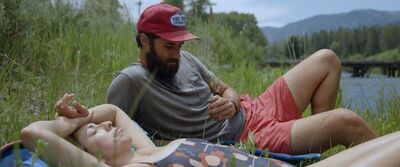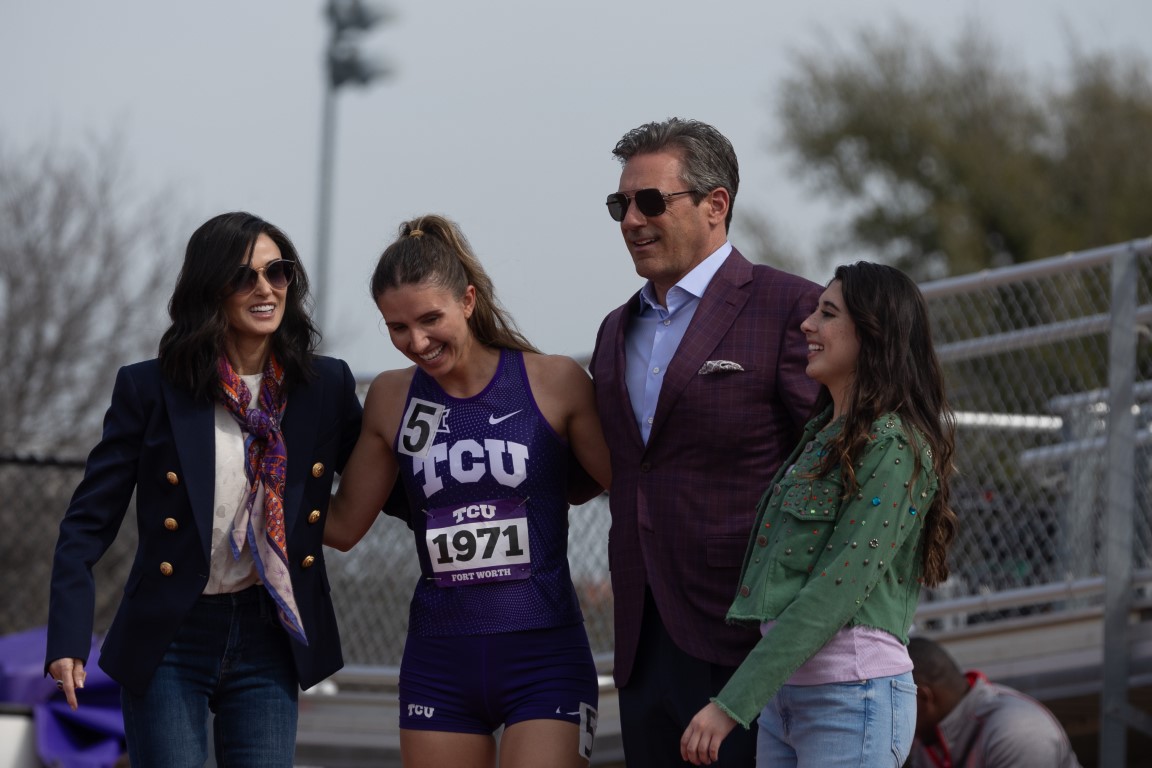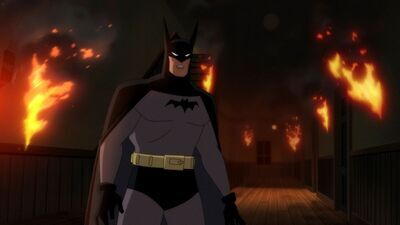

Co-directors Steven Kanter and Henry Loevner reunite (after their COVID-set breakup comedy “The End of Us”) for their sophomore feature, “Peak Season.” Engaged couple Amy (Claudia Restrepo) and Max (Ben Coleman) jet off from NYC to Jackson Hole, Wyoming, for a breath of fresh air as they finalize details for their upcoming wedding. And while towering mountains and sprawling landscapes are the perfect backdrop for romance, it isn’t the betrothed who experience it.
Max is an inattentive, self-absorbed workaholic. While “Peak Season” tells us they’re in love, the fact of their engagement is the only evidence we’re given. Their interactions are stiff, as Max often steps on top of Amy’s words and feelings to insert his own will and opinion. Most of her desires to spend time with him are met with dismissal at best and abandonment at worst (even ditching their hiking plans to go to a workout class with a female acquaintance they bumped into). So when his job (as an oft-stereotyped supply chain bro) calls him back to the city in the middle of their trip, Amy is forced (or, rather, gets the privilege) to kill time solo.
Going to their scheduled fly-fishing lesson alone, she meets Loren (Derrick Joseph DeBlasis), the community’s beloved outdoorsman who saddles between fishing lessons, rock climbing sessions, and dishwashing at a local spot. Yet despite capitalizing on a litany of opportunities in the town’s nature-forward gig economy, he’s barely scraping by, living in his SUV and showering with water out of a canteen that he rigs up in a tree. The two hit it off and spark up a fast-growing friendship that tiptoes the line of something more and calls their supposed contentment with their lives into question.
“Peak Season” investigates the principles of settling, romantically, personally, and otherwise. While love is at the center, foiling Max and Loren, the film delightfully takes its time fuzzing the lines between platonic and romantic connection, building the connection over its runtime rather than forcing a tired love-at-first-sight narrative. They rub shoulders at a Western bar where they have a meet-cute of sorts post-lesson. They giggle together at a rodeo. And realistically, they argue, aptly butting heads while trying to give Loren’s friend advice on the idea of settling down. While the theme of settling paves its way through the film, it does so rather simply, and we’re made hyper-aware of the point “Peak Season” wants to make.
Amy values comfort, while Loren puts stock in passion and freedom over stability, and this debate scene becomes a microcosm of the film’s dilemma. It makes us wonder: if we’re led to believe that Amy loves Max, then surely the thing to wonder about is if she likes him. However, some of the nuance of the juxtaposition in this love triangle is negated by the fact that while Loren has depth, Max is archetypically bad. We’re not given any reason to like him other than goodwill. He’s constantly selfish, demeaning, and corny (not even in a charming way).
The film’s performances also leave much to be desired. DeBlasis is the star here. Funny, charming, and empathetic, his performance yields an entire person, while Coleman and Restrepo occupy singular, liminal spaces in their characters. While Restrepo has a moment of redemption at the tail end of the film’s final act, every step of Coleman’s decision-making is seen and felt as plain as day.
“Peak Season” is a mostly charming reflection on the stalemate that occurs when you fear courage and comfort in equal measure. There are poignant moments, namely in the film’s conclusion, but for much of the run time, the observation grows stale as we struggle to connect to the performances on screen. “Peak Season” feels like a bunch of friends making a film; at times, this intimacy and dialed-back scale is charming. At others, it pokes holes in the facade of the fourth wall, and immersion is lost.



